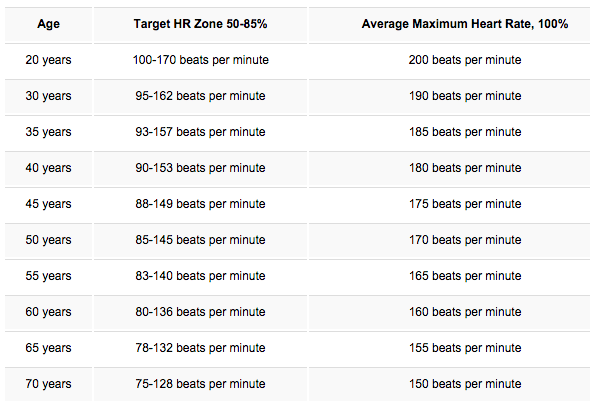Contents:
Medical Video: How To Avoid A High Pulse Rate
Your heartbeat can tell you how much weight your body is carrying. The Olympic swimmer, Michael Phelps, has a resting heart rate in the range of 30 beats per minute. His pulse is half as low as the average American.
How about you?
How to calculate heart rate at rest
Calculating your heart rate is easy, and you can use your numbers as a guide to how hard you have to exercise in the future.
To calculate your heart rate, you only need numeracy skills and a stopwatch. But, it's important to choose when to count. You will get the most accurate reading of your heart rate as soon as you wake up in the morning.
- Place the tip of the index finger and middle finger of the right hand on the side of the palm of the left wrist (or vice versa), just below the base of the thumb. Or, place the tip of the index finger and third finger on the neck of your lower jaw on one side of your throat. Don't use your thumb because your thumb has a light pulse that can confuse you when you count.
- Gently press your finger until you feel the pulse under your finger. You may need to move your fingers around it until you really feel the pulse.
- Calculate your pulse in 15 seconds. Multiply the result by 4 to get your resting pulse rate per minute. You can count your pulse three times, then take the average of all three to be absolutely sure.
So, what is your pulse rate?
According to American Heart Association, average resting heart rate:
- 10-year-olds, older adults and seniors: 60-100 beats per minute (BPM)
- Pro trained athletes are 40-60 beats per minute (BPM)
What does my pulse number mean?
In the age category below, find the age group that is closest to you to find your normal target heart rate guide:

The maximum heart rate is the highest heart rate achieved during maximum exercise. Your maximum heart rate is 220 minus your age. Ideally, your pulse rate should be between 50-85 percent of your maximum heart rate. Heart rate during moderate or moderate physical activity is around 50-69% of your maximum heart rate, while heart rate during heavy physical activity can increase heart rate to 70-85% of maximum heart rate.
Vital Records: Some high blood pressure medications can reduce heart rate and thus lower the target zone level. If you are prescribing this medication, call your doctor to find out if you need to use a lower heart rate.
Also keep in mind that besides the level of activity, fitness, and medication, the heart rate can also be affected by the temperature of the environment, body position (sitting or lying down, for example), emotions, and posture.
My heart rate is below normal, should I worry?
Slow heart rate when you do nothing implies a more efficient heart function and better heart and lung health. It may also be a sign for you to slightly boost the spirit and intensity of your exercise.
But, a weak heart rate (below 60 BPM) can be a sign of a problem in the heart's electrical system, called bradycardia. This means that the heart's natural pacemaker is not working properly or that the heart's electrical pathway is disrupted.
In the case of severe bradycardia, the heart beats so slowly that it does not pump enough blood to meet the body's needs. This can cause symptoms that range from fatigue, dizziness or headache, confusion, fainting or fainting; some people may feel short of breath. In extreme cases, heart failure or heart attack may be a side effect of a weak heartbeat that can be life threatening.
My heartbeat is fast, what does that mean?
If you are exercising or excited, your heart rate tends to increase to provide you with more oxygen throughout the body where energy will be most needed. If your heart rate is too high, it means that you are forcing too much intensity in your physical activity. So, be more relaxed when exercising.
On the other hand, a heart rate at rest that exceeds 100 beats per minute in an adult is a condition called tachycardia. How fast "too fast" for you may depend on your age and physical condition.
According to a study from the Medical College of Qingdao University in Shandong, China, people who have a resting heart rate of more than 80 beats per minute might mean you have a higher risk of experiencing premature death. "A higher resting heart rate can predict all causes and cardiovascular death," lead researcher Dr Dongfeng Zhang said. WebMD.
Researchers also found that people with resting heart rates of 60 to 80 minutes had a 21 percent greater risk.
However, Zhang said this risk is small - that is, the possibility of a person dying from a fast resting heart rate including low. In addition, studies do not prove that heart rate causes premature death; the results of the study only found a relationship between the two conditions.
What can I do to restore my heart rate back to normal?
Too fast or slow heartbeat is often the result of another heart condition, so taking steps to lead a heart-friendly lifestyle will usually improve your overall health. For example:
- Healthy heart-friendly diets, such as the Mediterranean diet involving various vegetables and fruits, olive oil, whole grains, nuts, fish, low / non-fat dairy products, and whole grains.
- Always active every day, or if not, most days of the week. Your doctor can tell you what level of exercise is safe for you.
- Lower weight if you feel the need, and keep a healthy weight.
- Manage other health problems you may have, such as high blood pressure or high cholesterol.
Get emergency medical help if you pass out or if you have symptoms of a heart attack or have severe shortness of breath. Call your doctor immediately if your heart rate is slower than normal, you feel like you are going to faint, or feel short of breath.
READ ALSO:
- 7 Benefits of Drinking Wine for Health
- How Can Cigarettes Cause Heart Disease?
- 4 of the Best Sports for Strengthening the Heart












